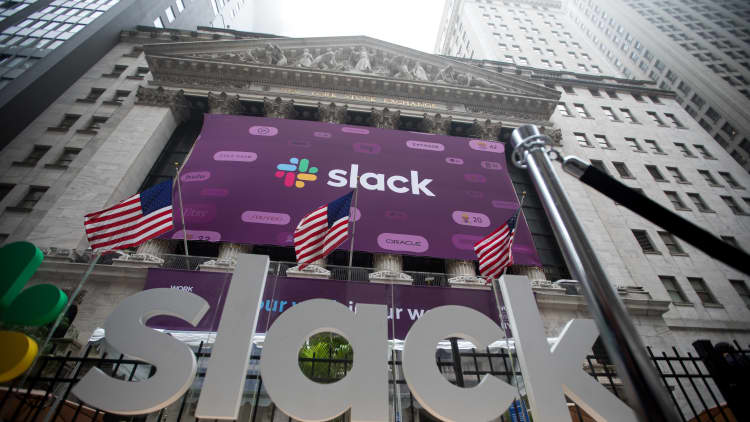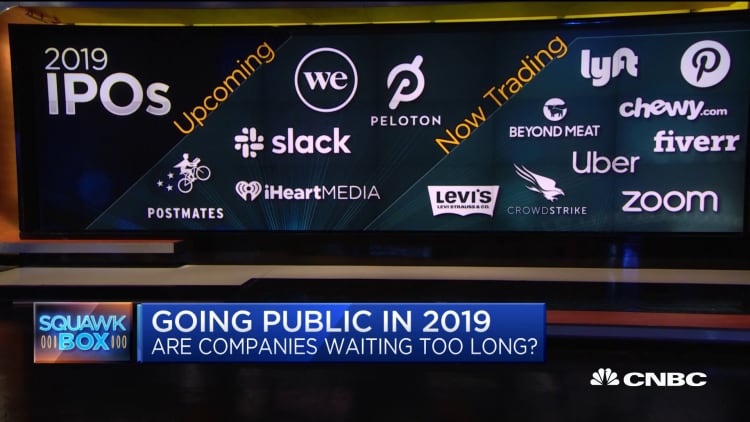
Venture firm Accel is known for making one of the most lucrative start-up bets in history, parlaying an early $12.2 million investment in Facebook into a stake worth more than $9 billion at the time of the company's IPO in 2012.
Seven years later, Accel is enjoying a comparable stretch of success.
The firm is the biggest investor in Slack, owning a 23.8% stake as the messaging app hit the public market on Thursday. Based on an opening price of $38.50 on the New York Stock Exchange, Accel's shares are worth $4.6 billion.
That's a decade after the firm put $1.5 million into the seed round of a gaming company called Tiny Speck, which later morphed into Slack.
"As investors it is easy to get lost in the complexities of product market fit or connecting a young company to an established category," Accel's Andrew Braccia wrote in a blog post Thursday. "Slack is a great reminder that the most interesting companies are often the ones whose courses aren't easily charted. The commonalities between those companies start and end with the drive, creativity and resilience of their founders and early team members."
Braccia, who's a Slack board member, made similar comments in a 2015 interview with TechCrunch. He said he talked to Slack co-founder Stewart Butterfield at the time of the pivot about whether the company should return the money now that the gaming idea was clearly a flop.
"But the company we'd invested in was Tiny Speck, which produced the game," Braccia told TechCrunch. "And the reason we invested in Tiny Speck was because we were investing in that team. I told Stewart, 'If you want to continue to be an entrepreneur and build something, then I'm with you.'"
Butterfield is a billionaire
Slack's direct listing comes just over a week after the IPO of security software company CrowdStrike, which counts Accel as its second-biggest shareholder, owning stock worth $2.6 billion. In 2013, Accel led CrowdStrike's $30 million Series B financing round.
Those are huge hauls, particularly for a firm that has traditionally raised sub-billion-dollar funds, and they account for two of the biggest venture returns of 2019, a year that's included the debuts of Uber and Lyft. Unlike those high-profile IPOs, Slack chose to go public through a direct listing, meaning the company didn't raise fresh capital but is letting existing shareholders convert their shares into stock that can be traded.
Accel isn't the only Silicon Valley firm poised to get rich off Slack. Andreessen Horowitz owns 13% (worth $2.6 billion at the open) and Social Capital controls 10% ($2 billion).
Butterfield is the biggest individual shareholder, with an 8.4% stake ($1.6 billion), followed by co-founder and Chief Technology Officer Cal Henderson at 3.3% ($639 million).
The NYSE gave a reference price for Slack on Wednesday night of $26 a share. When Spotify debuted in a similar fashion last year, its reference price was $132, but the stock opened at $165.90 the following day before closing at $149.01.
Slack's price was ultimately determined by the designated market maker, based off a calculation of a figure where buy orders could be met with sell orders.



